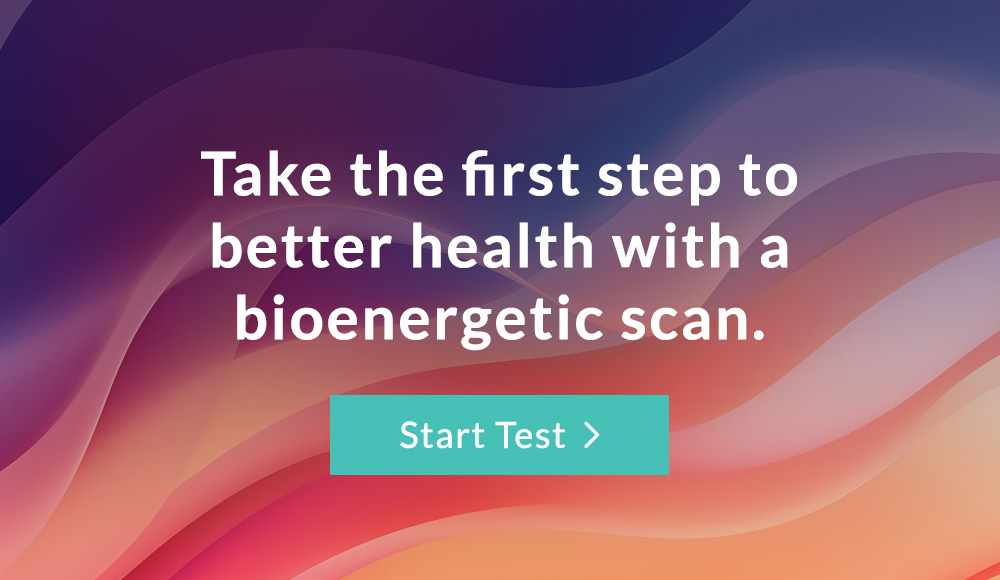
Your Mast Cell Activation Syndrome Questions – Answered!
Mast cell activation syndrome (MCAS) is a condition that causes your body’s mast cells to release an excessive amount of chemicals, sometimes without a clear reason.
While some symptoms of MCAS can resemble allergies, the unpredictability of these reactions can make it challenging to manage.
Ever feel like your body’s reactions come out of nowhere? For those living with MCAS, this can feel like a constant battle. Whether it’s an unexpected reaction to a meal or a seemingly random health flare-up, MCAS can keep you on your toes, never knowing what might happen next.
So, what exactly is MCAS, and why does it seem so unpredictable?
What is a Mast Cell?
Imagine your Immune System as a well-organized army; mast cells are like the front-line soldiers stationed in places like your skin, digestive tract, and respiratory system.
When mast cells detect an allergen or injury, they release chemical messengers called mediators. There are hundreds of mediators, including histamine, that help:
- Create inflammation to fight off infections
- Aid in healing wounds by increasing blood flow
- Signal the brain that the body needs support.
Under normal circumstances, mast cells are well-regulated and release mediators only when necessary. However, they don’t always follow the rules in conditions like MCAS.
What is Mast Cell Activation Syndrome?
MCAS happens when mast cells go a bit rogue and release these mediators in an uncontrolled way. These reactions can vary from mild allergic-like responses to more serious systemic issues. Unlike traditional allergies with predictable triggers, MCAS reactions can be sparked by factors like stress, diet, or even seemingly at random. (more on triggers below).
Though different, Mast Cell Activation Syndrome may seem similar to histamine intolerance (HIT). Mast cells release several chemicals, including histamine, in MCAS, whereas histamine intolerance involves an excess of histamine alone.
Why is MCAS Hard to Diagnose?
Because symptoms of MCAS overlap with so many other conditions like allergies, autoimmune disorders, and digestive issues, it can take years for individuals to get a proper diagnosis, with many visiting multiple specialists along the way. In fact, it’s not uncommon for people to go their entire lives without knowing they have MCAS, as the condition is often misdiagnosed or overlooked. On average, it takes about 10 years to receive a definitive diagnosis. The exact prevalence of MCAS remains unclear due to the lack of a standardized diagnostic approach. However, one study in Germany estimated that 17% of the population may be living with MCAS.
The Types of MCAS
- Primary MCAS – Caused by genetic mutations in mast cells.
- Secondary MCAS – Triggered by external factors such as infections or toxins.
- Idiopathic MCAS – No clear cause can be identified.
Regardless of type, the result is the same: overactive mast cells flood the body with chemical mediators, causing symptoms that wax and wane unpredictably.
What Are the Signs or Symptoms of MCAS?
Disclaimer: At CBH, we do not diagnose MCAS with bioenergetic testing. We CAN help identify body systems and other factors that may stress our energetic field.
Mast Cell Activation Syndrome can affect multiple systems in the body, causing symptoms that range from mild discomfort to severe. Here are four key areas where MCAS commonly shows up!

1. Integumentary System
Mast cells are abundant in the skin, making it one of the first areas to show signs of MCAS. When these cells release histamine and other mediators, they can cause a range of skin reactions. Here is what to look out for:
- Flushing:
- Hives (Urticaria)
- Itching and rashes
- Angioedema
2. Digestive System
The Digestive System is closely linked to mast cell activity, as the gut is a major site for immune responses. When mast cells in the gut are triggered, they can release inflammatory mediators that disrupt digestion and cause discomfort.
- Nausea and vomiting
- Abdominal pain and bloating
- Diarrhea or constipation
- Food sensitivities and intolerances
Since the gut is closely linked with the Immune System and the Nervous System (the gut-brain axis), MCAS can lead to further complications, like gut inflammation and increased intestinal permeability (leaky gut), which can trigger systemic immune responses.
3. Cardiovascular System
Mast cell activation syndrome can affect the Cardiovascular System, leading to symptoms that often overlap with other conditions. These include:
- Rapid heart rate (Tachycardia)
- Low blood pressure (Hypotension)
4. Respiratory System
Mast Cell Activation Syndrome commonly affects the Respiratory System, resulting in symptoms similar to allergic reactions. This occurs when the release of histamine and other chemicals leads to inflammation and narrowing of the airways, making it harder to breathe.
- Wheezing
- Shortness of breath
- Sneezing and nasal congestion
- Coughing
What about MCAS & The Brain?
MCAS can also impact the Nervous System because inflammatory mediators can cross the blood-brain barrier. This connection helps explain why individuals living with MCAS often report challenges that affect brain function and mental well-being, including:
- Brain fog
- Headaches and migraines
- Fatigue
- Heightened sensitivities
- Mood changes
What Are the Triggers of Mast Cell Activation Syndrome?
While each person with MCAS may have their own unique set of triggers, here are some of the most common ones:
1. Food Triggers
The connection between diet and mast cell activation is significant, especially when it comes to histamine-rich foods. Imagine eating a perfectly aged cheese or enjoying a glass of wine, only to experience flushing, itching, or digestive discomfort soon after. For those with MCAS, foods like fermented products, aged cheeses, and processed meats can be a recipe for a flare-up. While it might seem limiting, understanding your body’s responses can help you enjoy meals without surprises.
2. Environmental Triggers
Have you ever walked into a room filled with the scent of fresh flowers or strong perfume and immediately felt unwell? Environmental factors such as pollen, dust, and even air pollution can spark mast cell reactions. These triggers can be particularly frustrating since they’re often unavoidable, but strategies like air purifiers and reducing exposure to strong scents can help.

3. Stress and Emotional Triggers
Stress is one of the most common, yet often overlooked, triggers for MCAS. When the body is under stress, the Nervous System releases hormones like cortisol, which can lead to mast cell activation. Whether it’s a heated argument, a looming deadline, or even physical exertion, stress hormones can ramp up mast cell activity. Emotional stress, in particular, can feel like a double-edged sword—affecting both your mental and physical health.
4. Temperature Changes
Extreme temperatures, whether hot or cold, can be a significant trigger for people with MCAS. Temperature fluctuations can cause mast cells to release histamine. Being mindful of temperature extremes and dressing appropriately can help manage symptoms.
5. Physical Activity
While exercise is generally beneficial for health, for those living with MCAS, intense physical activity can sometimes trigger symptoms. Moderate exercise and balancing activity and rest may help manage symptoms.
What Options Are Available for Managing MCAS?
Common conventional approaches will include:
- Antihistamines: To block histamine receptors and reduce allergic-like symptoms.
- Mast Cell Stabilizers: Medications like cromolyn sodium may prevent mast cells from releasing inflammatory mediators.
- Leukotriene Receptor Antagonists: To target other inflammatory pathways.
- Epinephrine: In severe cases, such as anaphylaxis, epinephrine may be required.
Consulting with a healthcare provider experienced in Mast Cell Activation Syndrome is necessary for determining the best pharmaceutical options for your situation.
From a holistic perspective, diet, supplements, and other strategies are often used to help manage symptoms of MCAS.
As we saw above, foods high in histamine may trigger a response, so focusing on a low-histamine diet may help.
Foods to Include:
- Fresh, unprocessed meats
- Non-citrus fruits like pears and apples
- Most fresh vegetables
- Gluten-free grains such as rice and quinoa

Beyond medication and diet, several holistic approaches can provide relief and improve overall well-being:
Supplements
- Quercetin: A natural flavonoid that can stabilize mast cells.
- Vitamin C: Helps reduce histamine levels.
- Magnesium: Supports relaxation and may mitigate stress-induced triggers.
- Probiotics: To enhance gut health, which can influence mast cell behavior.
Stress Reduction
Chronic stress is a known mast cell activation trigger. Techniques to consider:
- Meditation or mindfulness practices
- Bioenergetic exercises like yoga and spending time in nature
- Get a good night’s sleep!
And, of course, do your best to avoid the triggers we mentioned above!
Bioenergetic Testing
Bioenergetic testing can offer valuable insights into the underlying imbalances that may be contributing to your symptoms of MCAS. By identifying factors such as environmental toxins, parasites, and nutrient deficiencies, testing can help you create a more personalized, holistic approach to your health.


